Going to church as an act of cosmic justice (more from this week's sermon)
Paul, the powers, sacramental theology, Michelangelo's David, politics, and the meaning of the word "mystery." In light of a busy week, I'm offering last week's sermon and some of my slides.
I’m dedicated to sending something your way each week. This past week has been busier than usual and this month has included more travel than normal. I also worked really hard on this sermon (for a number of reasons) and want to share it with you all. I thought I would add a few quick thoughts of what was on my heart from last week’s sermon and then simply share it with you here (along with some of my slides). Here was my heart in this last week’s sermon, entitled, “Going to church as an act of cosmic justice”:
Ephesians 3:1-13 (my teaching text) must be preached in our day today and its meaning is significant. I wanted to grab everything I could from exegeting this passage. Apparently, for me, that took 48 minutes and a significant slide deck. Nevertheless, I believe Ephesians is of enormous importance for our day.
I’ve become increasingly convinced of what is called “a sacramental ontology”—a way of understanding creation and being that is rooted in a participatory relationship between seen and unseen realms. I think if Christians understood a sacramental vision of the world (that seen and unseen things participate with one another in their very nature), it would help them navigate everything from political despair to sexual ethics and capitalism. I think this passage is one of many places the biblical writers show their cards plainly. The Cartesian or “symbolic” view (as I call it in this sermon) sets up the world as seen stuff (outward/visible reality) in opposition to and separate from unseen stuff (inward spiritual reality). I think this is a recipe for misinterpreting large sections of Scripture, including some of the more hotly contested issues in our generation. Most Protestants today carry a good chunk of this as they say “I’m a soul with a body” or “this is an issue of mind over matter.” I find this concession to Cartesian thinking catastrophic to modern theology and a rescue from our biblical roots is necessary. So this is kind of foundational or “premise-building” kind of sermon with a million implications. If this is true, government is not just what you see, your body is not just what you feel, and your spiritual life is not just a product of your conscious thought life, but your social, embodied, communal existence.
Books always stir my heart and lead me to prayer. The reading list of course included numerous commentaries on Ephesians along with helpful books towards this area. I quote from Hans Boersma’s excellent Heavenly Participation: The Weaving of a Sacramental Tapestry, but also gained tons from Esther Acolatse’s Powers, Principalities, and the Spirit: Biblical Realism in Africa and the West. But of course this all got started in me with Augustine’s De Doctrina Christiana.
I long for Christians to understand that the best reason to go to church is a theological reason. God is there. The church is not just “like” Christ’s body—it is Christ’s body. We are not just engaging with symbols of Christ, we are experiencing Christ himself. God is active in a unique way in his gathered people. Strange things happen. Worship isn’t karaoke. Communion isn’t a snack. Christ is present with his people through the sacraments and through the gathering of them together. But these sacraments and gatherings participate with the larger creation to tell us something about being alive: our existence is charged with spiritual meaning and draws us to the Living God’s Actual Glory and Presence and Power. Going to church is an act of cosmic justice.
This is how Christians are invited to see the world: as sacramental, not symbolic. Here’s the view many of us begin with in the West:
And this is the invitation of Ephesians:
To see the world as sacramental means we can see that the madness of our political moment is not only the actors we see carrying them out; it is also the unseen “powers” (Paul’s language) that animate them. Satan, sin, and death are are just as real as the Executive Branch of the United State Government. And they don’t just refer to one another—they participate with one another.
Paul sees time and space as sacramental, allowing him to see the work of Jesus Christ as bringing “all things” together in history and across heaven and earth: “In him we have redemption through his blood, the forgiveness of our trespasses, according to the riches of his grace, which he lavished upon us… as a plan for the fullness of time, to unite all things in him, things in heaven and things on earth” (Ephesians 1:7-10).
This led to Paul’s experience of a revelation of time: that the age to come was breaking in to this present age, allowing him to see Christ and His resurrection not as a “symbol” for new life, but as the actual, physical first act of new creation that was breaking into this present age.
Putting this all together, you see why Paul was gobsmacked by this “revelation” of “the mystery” that he writes about extensively in Ephesians 1-3. It means that these little church assemblies were experiencing the participation of heaven and the age to come right in the midst of their messy, sinful, drama-filled communities. And it means we are too today. In the very same filth there is glory. Death interacts with life. The church is the most exciting spiritual space on the planet. We just often do not see what Paul sees.
When Jesus taught, he used the term “the kingdom of Heaven,” which would exist as the term in the center of these circles here. For Paul, the “kingdom” is not the church, but the church, at its best (which is exactly the picture Ephesians is all trying to paint), is an outpost of that kingdom that participates in the knowledge of the mystery: Christ bringing all things together.
“This mystery is that through the gospel the Gentiles are heirs together with Israel, members together of one body, and sharers together in the promise in Christ Jesus” (Ephesians 3:6).
Here’s the full sermon on YouTube (the audio on Spotify is here but will, of course, lack the essential visuals):
Christ, build your church, and give us the wisdom and courage to participate in it as you please.




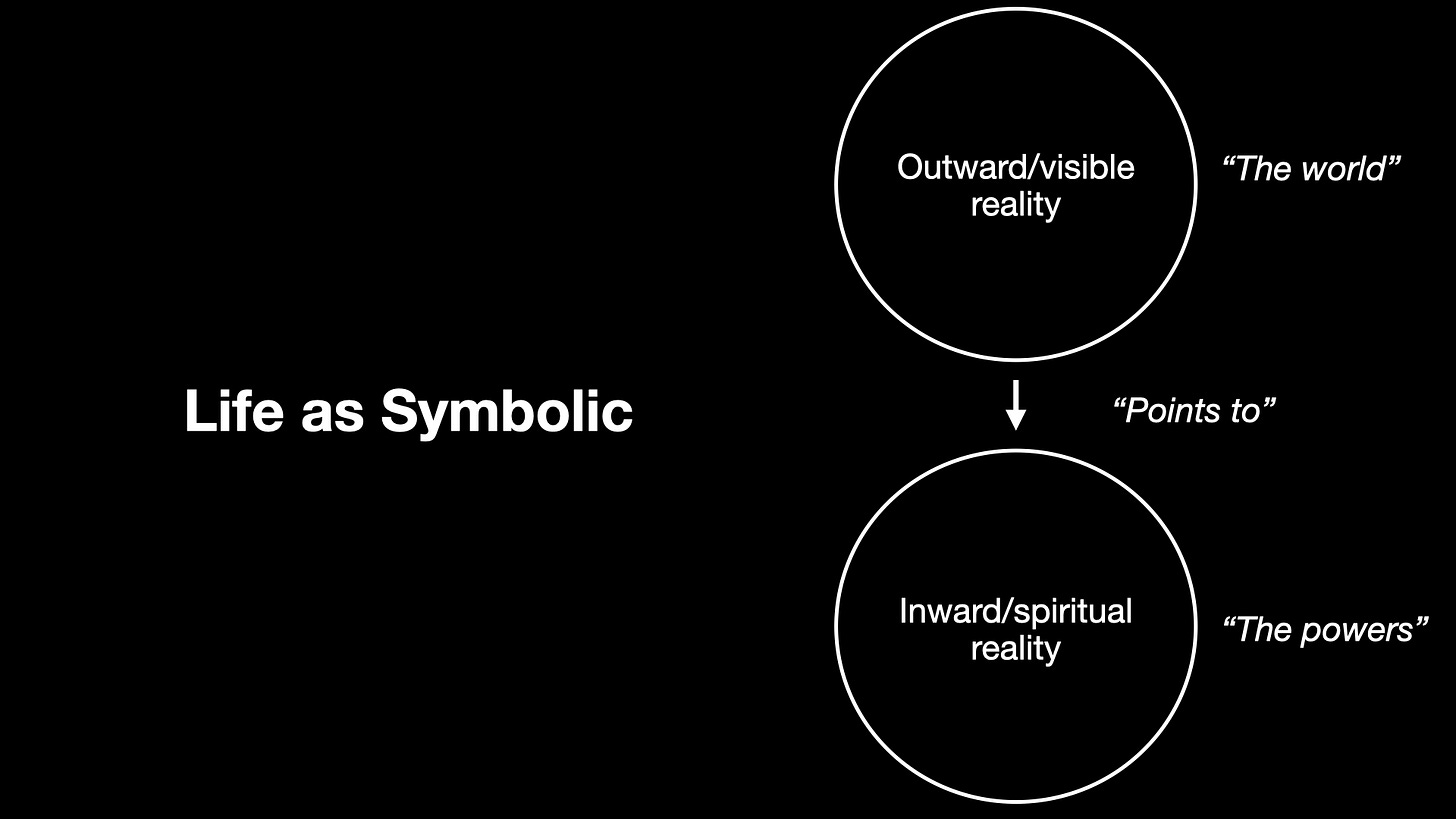

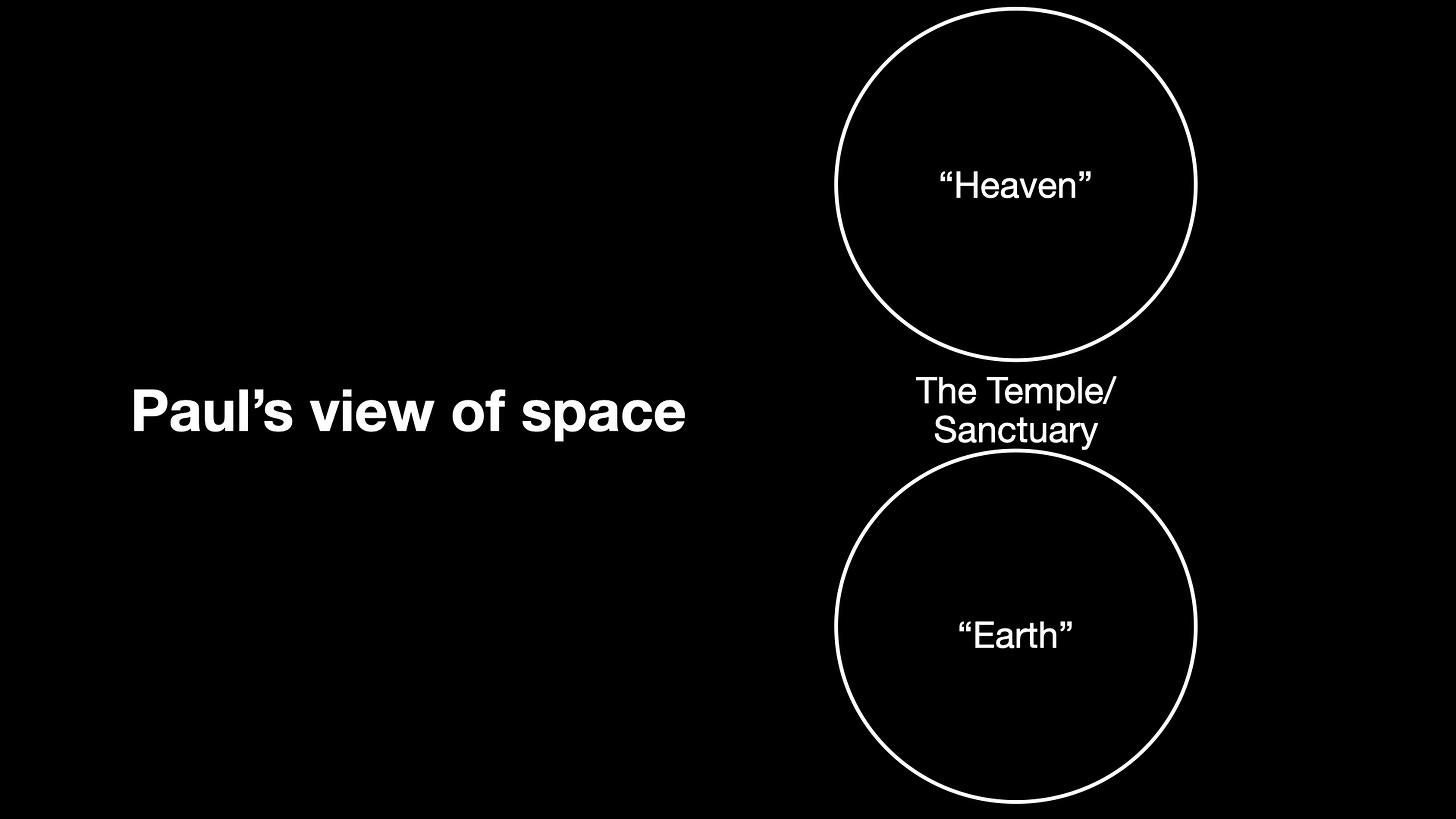
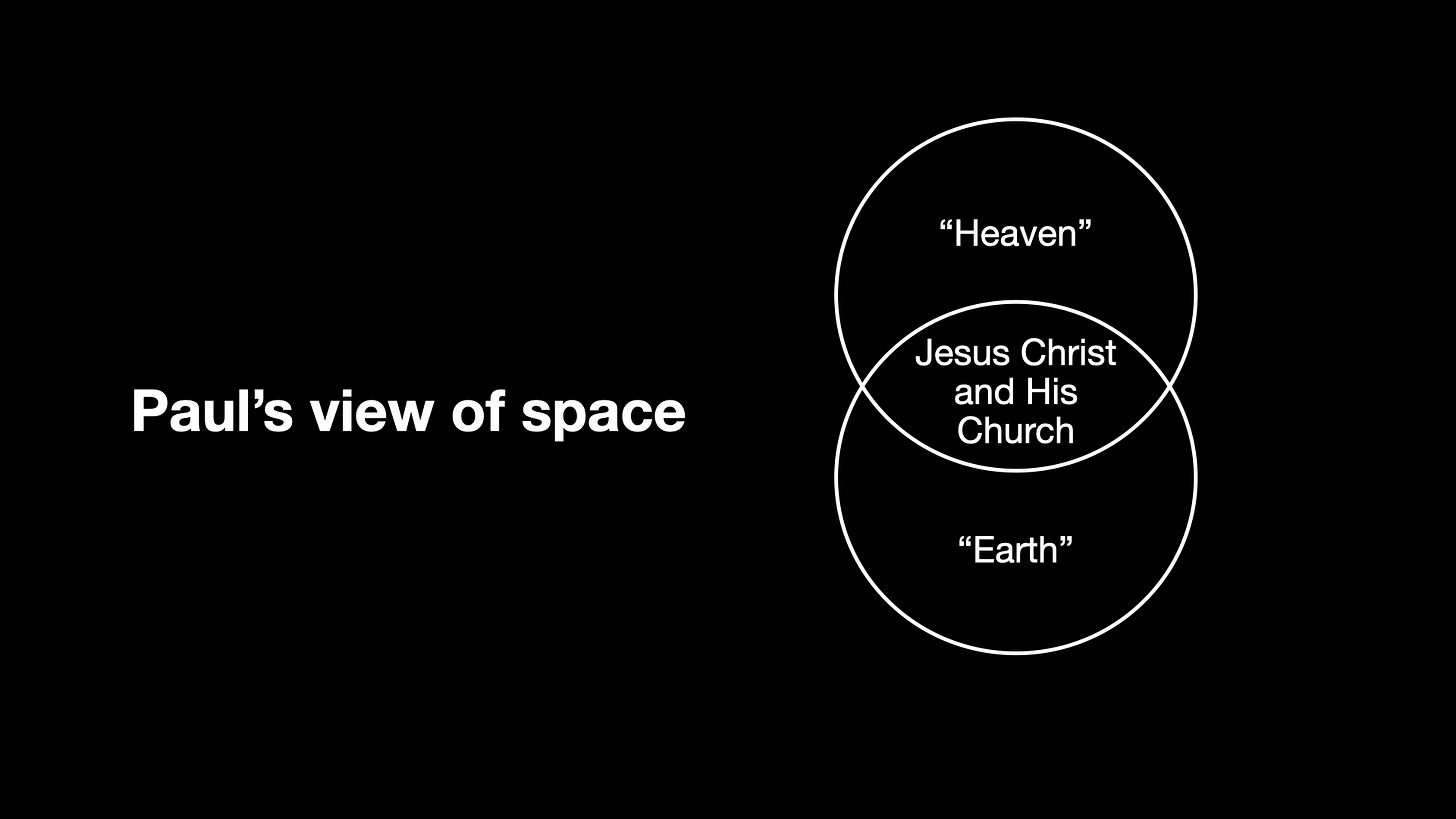
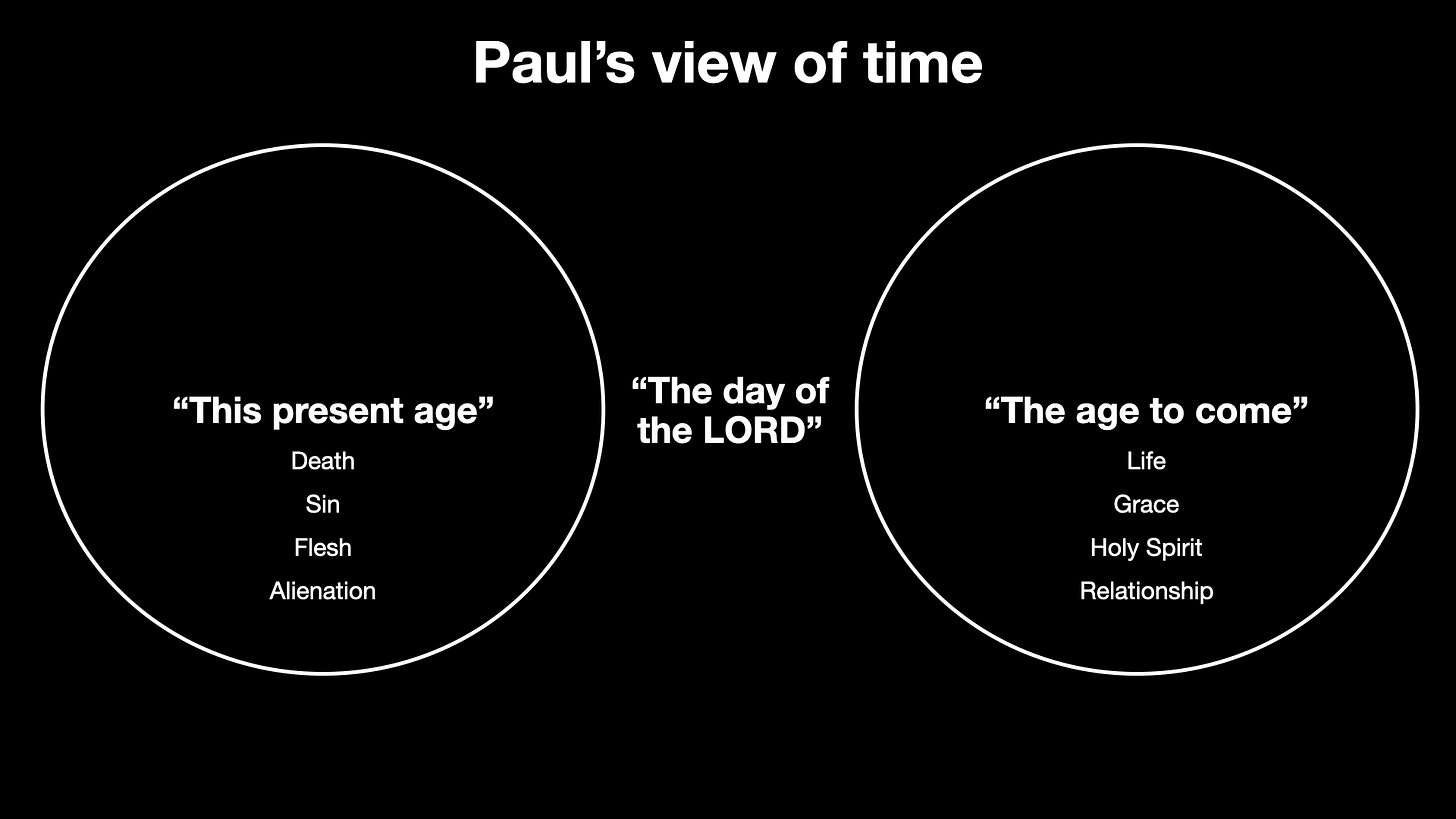
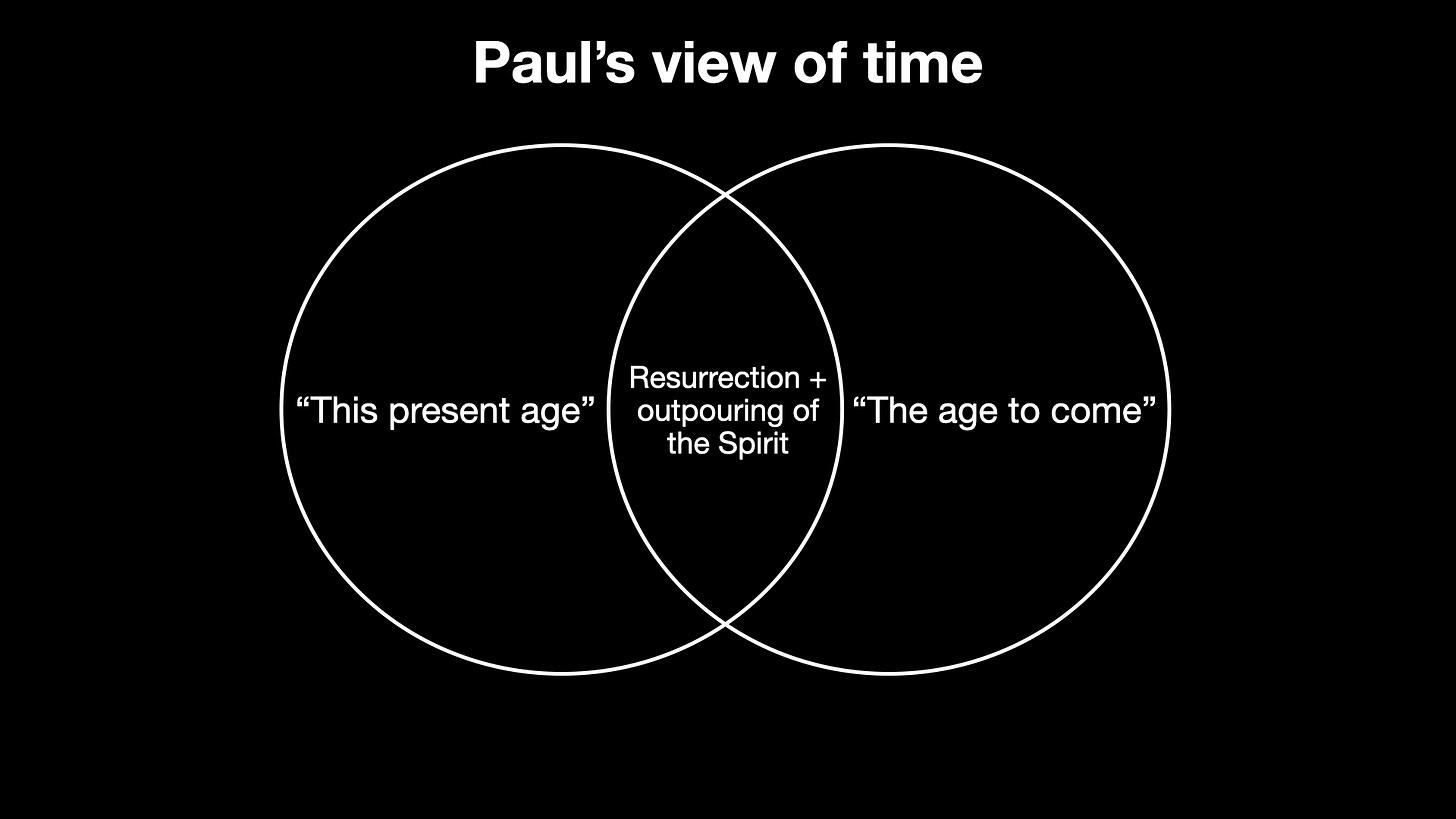
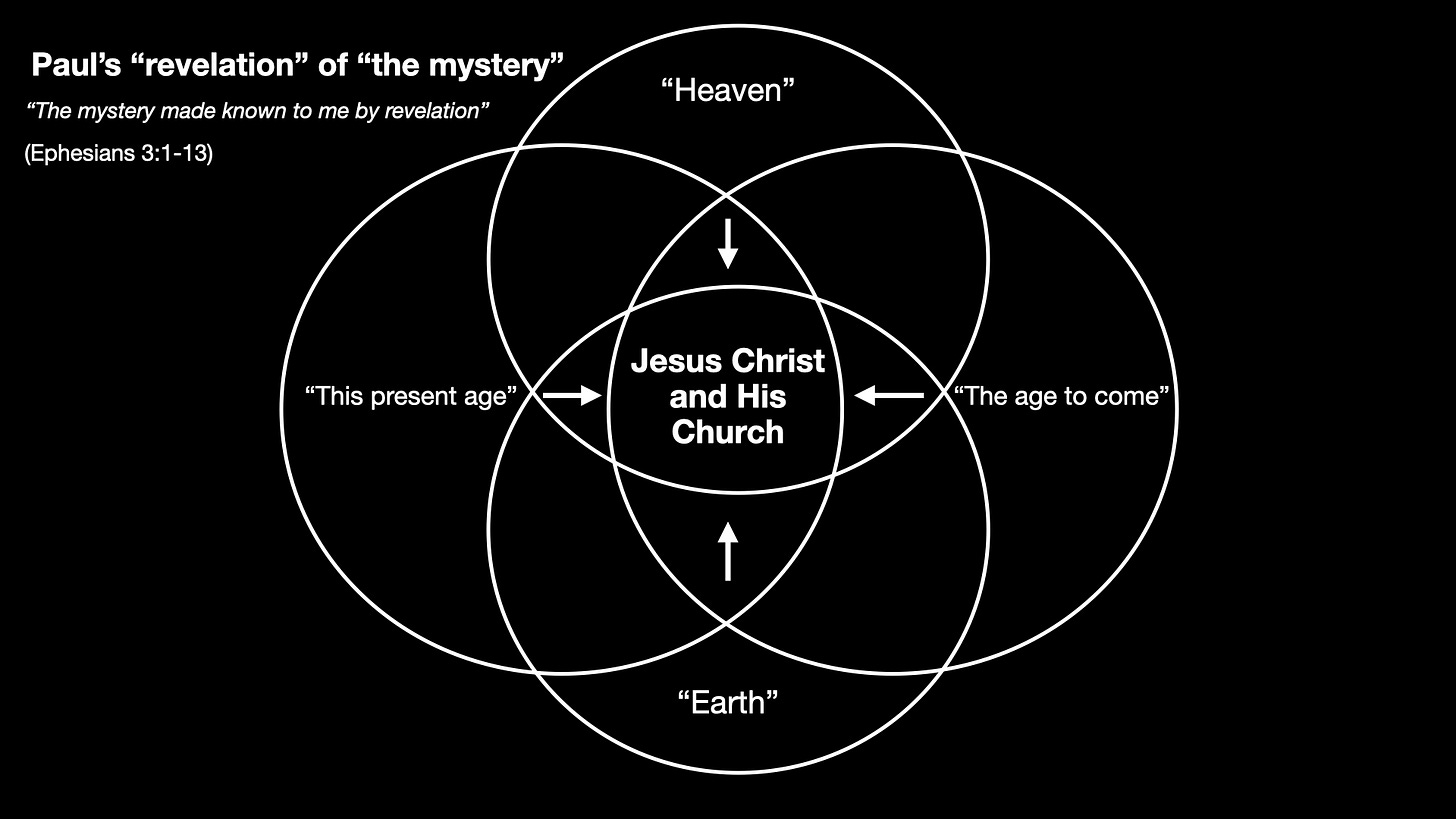
Potent. Helpful.
Heavy duty sermon. Difficult to process in one sitting. Thanks for sharing the slides. I’d hoped you would.